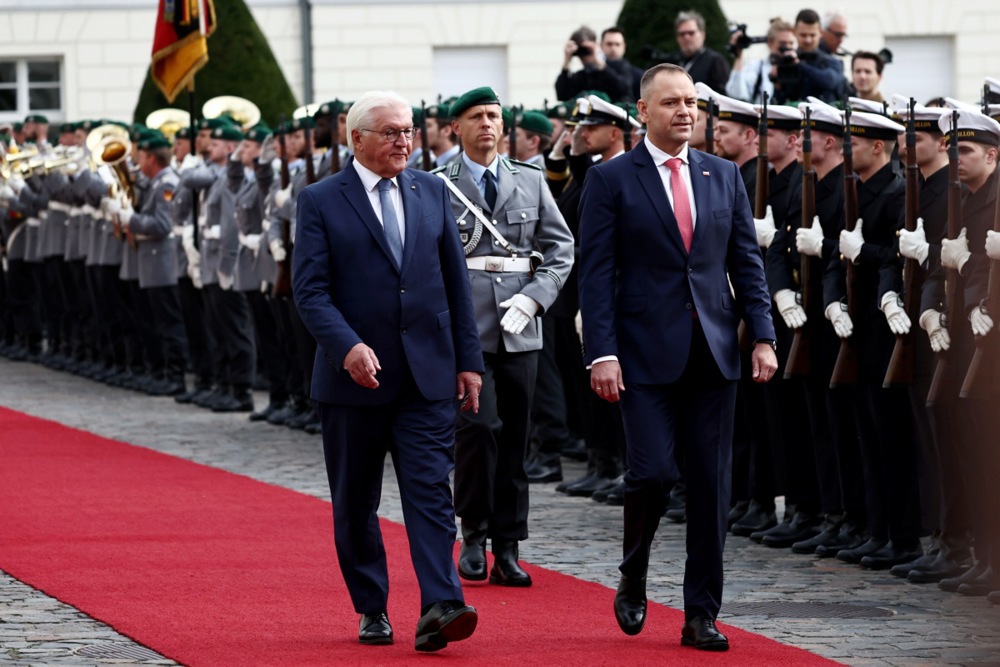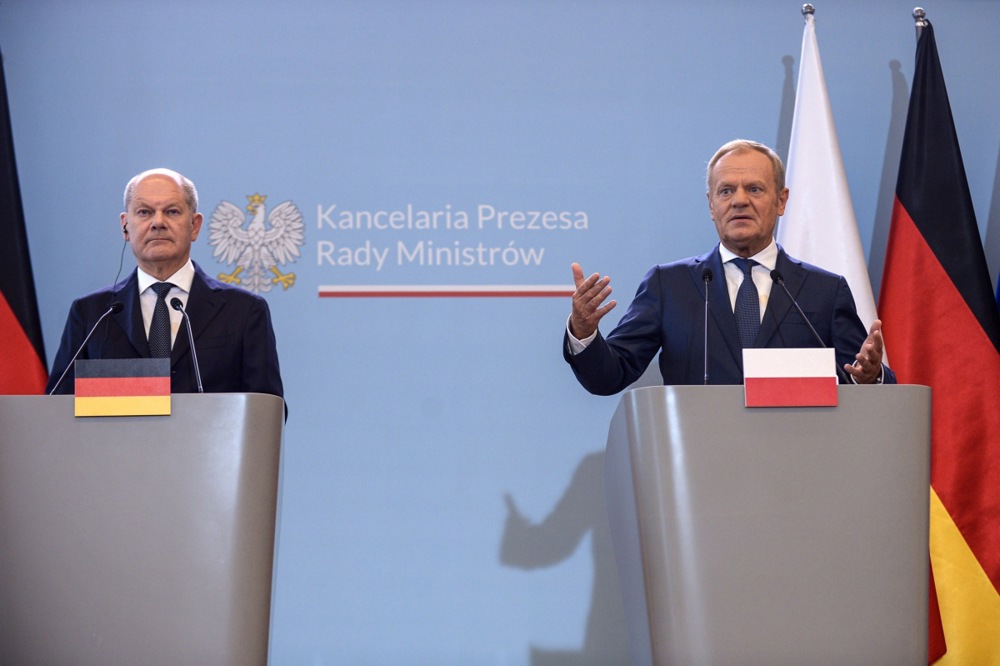The German ambassador to Poland Miguel Berger has become embroiled in a row following his remarks on Poland’s reparations claim, calling the opposition Conservatives (PiS), who support it, “divisive” and “aiding Putin”.
His comments prompted an angry response from PiS figures and the head of the PiS-aligned President Karol Nawrocki’s foreign policy aide. They said Germany had for years pursued closer relations with Moscow and made Europe more reliant on Russian energy.
The dispute started on November 14 when Berger was interviewed by commercial broadcaster TVN. He reacted sharply to a question about the previous PiS government’s reparations claim for $1.3 trillion (€1.12 trillion) for Second World War damages caused by Germany.
“Sometimes I have the impression that some people who talk about reparations do so because they perhaps do not want Polish-German relations to develop positively,” Berger said.
His government has repeatedly argued that the issue of reparations is closed as it was settled via the acquiescence of the then-Communist Polish administration in the 1950s for the payment to be given to the USSR.
PiS MEP and former deputy foreign minister responded to the ambassador on social media. He said he would gladly pass on the report on war losses sent to Germany during the time of the PiS administration as it “clearly illustrates the scale of the destruction and the unsettled debt of Germany towards Poland”.
In response to that, Berger wrote: “You are mistaken in thinking that your ‘report’ and your activism will shape the future of our relations. The constant divisions created by people like you only help [Russian President Vladimir] Putin.”
That remark was slammed by the Polish President’s foreign policy aide Marcin Przydacz. He hit back saying: “If something helped Putin, it was the existence of the Nord Stream pipelines, bringing gas from Russia to Germany, that you, Mr Ambassador, so decisively defended during many of our official conversations.
“And I have good news for you: This war reparations report exists and will influence the shape of Polish-German relations until Germany fully accounts for the crimes and destruction it committed against my nation and state,” added Przydacz.
Similar remarks were made by Anna-Maria Żukowska, the head of the parliamentary caucus of The Left Party, which is part of Poland’s current ruling coalition. She reminded Berger that it was Germany which had pushed for the Nord Stream gas pipelines that by-passed both Poland and Ukraine and which boosted Russian income from gas sales..
“It’s a bit awkward in this context to refer to helping Putin, wouldn’t you say?” she mused.
Despite calls for an apology from Berger, on November 16 he expressed regret for a separate incident that spurred an official protest from the Polish Government. That related to a planned auction of Second World War memorabilia that included the personal effects of both Jewish and Polish victims.
The auction was withdrawn following intervention by the German Government and the ambassador condemned all attempts to monetise the tragedy of the Holocaust and the Second World War.
Poland’s present government has acknowledged that the issue of reparations is impossible given Berlin’s position. It has suggested, though, that Germany should find other avenues to compensate Poland for the damages sustained during the war.
As yet, talks on what such compensation might entail have failed to produce any results.





